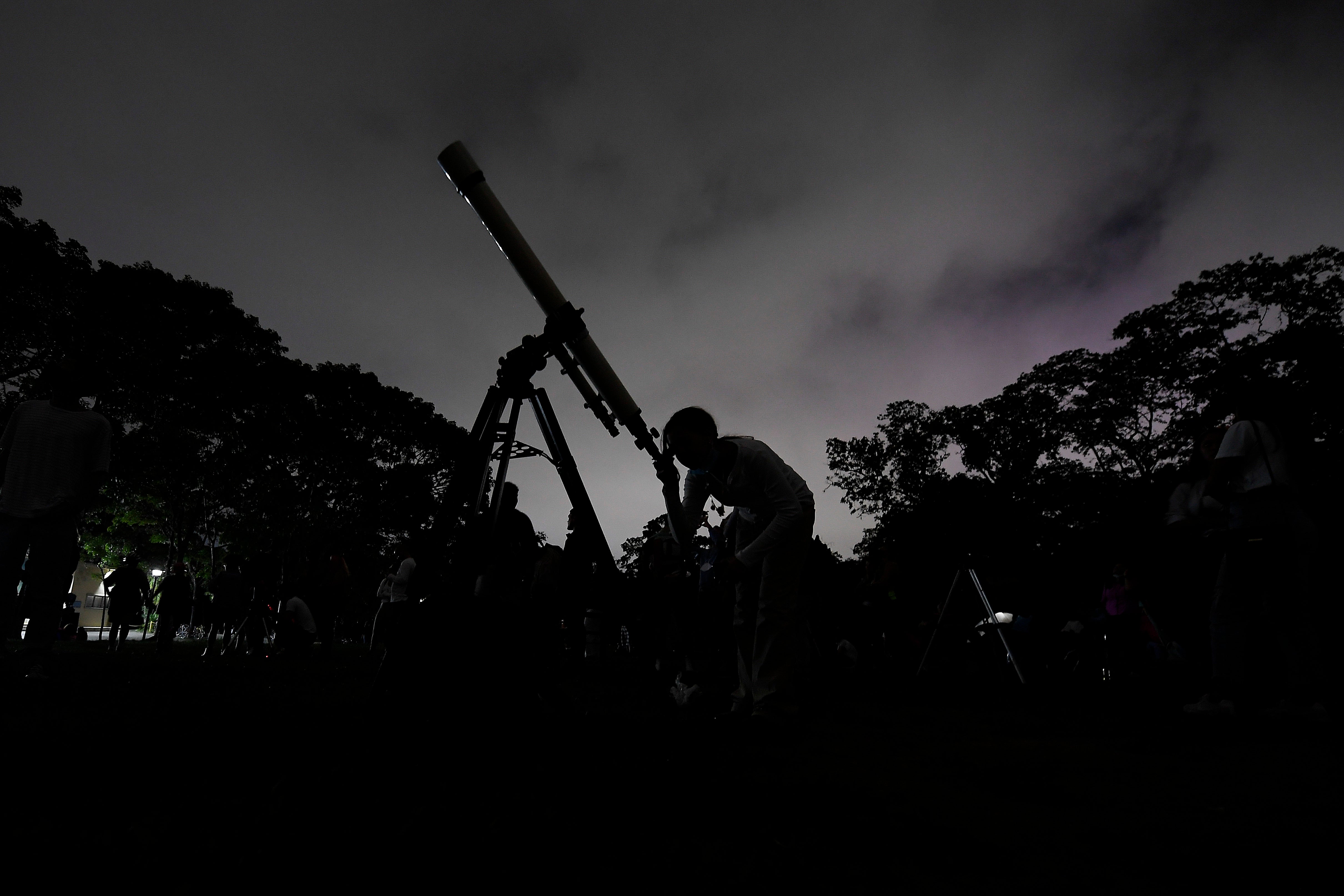Planets on parade: 5 will be lined up in night sky this week
There's a special chance this week to see five planets lined up in the night sky

Keep an eye to the sky this week for a chance to see a planetary hangout.
Five planets — Mercury, Jupiter, Venus, Uranus and Mars — will line up near the moon.
WHERE AND WHEN CAN YOU SEE THEM?
The best day to catch the whole group is Tuesday. You’ll want to look to the western horizon right after sunset, said NASA astronomer Bill Cooke.
The planets will stretch from the horizon line to around halfway up the night sky. But don't be late: Mercury and Jupiter will quickly dip below the horizon around half an hour after sunset.
The five-planet spread can be seen from anywhere on Earth, as long as you have clear skies and a view of the west.
“That’s the beauty of these planetary alignments. It doesn’t take much,” Cooke said.
DO I NEED BINOCULARS?
Maybe. Jupiter, Venus and Mars will all be pretty easy to see since they shine brightly, Cooke said. Venus will be one of the brightest things in the sky, and Mars will be hanging out near the moon with a reddish glow. Mercury and Uranus could be trickier to spot, since they will be dimmer. You’ll probably need to grab a pair of binoculars.
If you’re a “planet collector,” it’s a rare chance to spot Uranus, which usually isn't visible, Cooke said. Look out for its green glow just above Venus.
DOES THIS HAPPEN OFTEN?
Different numbers and groups of planets line up in the sky from time to time. There was a five-planet lineup last summer and there's another one in June, with a slightly different makeup.
This kind of alignment happens when the planets’ orbits line them up on one side of the sun from Earth’s perspective, Cooke said.
___
The Associated Press Health and Science Department receives support from the Howard Hughes Medical Institute’s Science and Educational Media Group. The AP is solely responsible for all content.